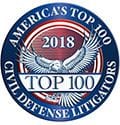The U.S. Food and Drug Administration is responsible for approving medication. When medication is approved, it’s for a specific therapeutic benefit. For example, medication can be approved to treat high blood pressure, seizures, or depression. Some medicines are approved for one thing but later found to be beneficial in some other aspect. This is what’s known as off-label use. According to WebMD, the practice is quite common. However, it’s not without its risks.
Numerous drugs are prescribed in this manner. For example, people suffering from chronic pain are often provided medicine traditionally used to treat depression and anxiety. Certain cancer drugs are frequently used off-label, as many of these drugs are originally designed to treat one type of cancer but are found to be successful at treating others. Medications used to treat high blood pressure can also be used to treat heart disease or even prevent heart failure in some patients.
Despite many successful cases of off-label use, there can also be poor outcomes for patients. In once case, a drug used to help obese people get to a healthy weight actually caused significant medical issues for some. Fen-phen, which is a combination of fenfluramine hydrochloride and phentermine hydrochloride, was thought to be a safe method for inducing weight loss in obese patients. While the two drugs were safe when taken individually, when combined they caused serious heart problems, which actually led to lawsuits being filed in the late 90s. Despite a lack of safety data, many doctors went ahead with prescribing the ultimately dangerous drug cocktail.
And that’s the real problem with off-label use, according to many. Doctors are not obligated to tell patients a drug they’re taken is being prescribed off-label. This prevents patients from being able to make decisions about their health care, such as whether the benefits of a therapy outweigh the risks. While studies do back the decision to use a drug for purposes other than it was intended, this doesn’t mean that it’s safe for all patients.






